Are you dealing with the frustrating reality of a breach of contract? Whether it's a missed deadline or unfulfilled obligations, navigating the complexities of contract termination can be overwhelming. This letter template will help you articulate your position clearly and professionally, ensuring you cover all necessary details. Ready to take the next step? Read on to find out how to craft the perfect termination letter!
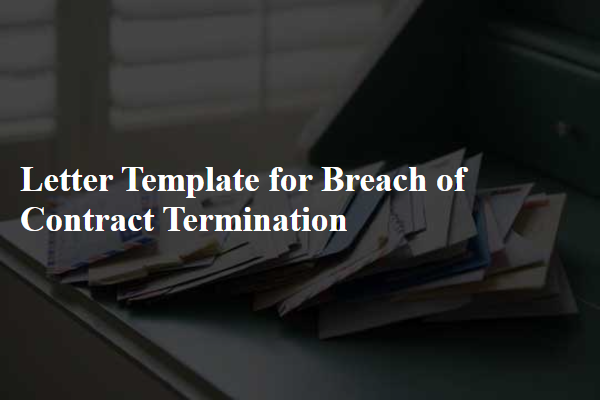
Clear breach details
In a legal context, a breach of contract refers to the failure of one party to fulfill their obligations as stipulated in the agreement. For instance, if a construction company, such as XYZ Builders, fails to complete a home renovation project by the agreed deadline of March 1, 2023, this could be categorized as a clear breach. The contract may outline specific penalties for delays, including fines for each day the project remains unfinished. Additional details may include inadequate quality of workmanship or failure to obtain necessary permits, which could further substantiate the claim. Clear documentation of communications related to the breach, such as emails or messages, serves as vital evidence in any related legal proceedings. Termination of the contract may subsequently allow the non-breaching party (for example, the homeowner) to seek damages or pursue alternative contracting options.
Termination clause reference
The termination of contractual agreements often stems from breaches that violate specific terms outlined within the contract. For example, a widely referenced termination clause might specify conditions under which a party can terminate an agreement, such as failure to meet deadlines or fulfill obligations. In a typical contract, this clause may be designated as "Section 8: Termination" and detail the requisite notice period, which could range from 14 to 30 days, and the process for notifying the breaching party. This ensures adherence to legal frameworks and minimizes potential disputes. Essential elements include the explicit identification of breaches, such as non-payment of invoices exceeding $5,000 or failure to deliver goods as per the agreed timeline of 30 days. Documenting the breach comprehensively strengthens the case for termination and paves the way for any necessary legal proceedings, should they arise.
Final compliance deadline
A breach of contract termination letter serves as a formal notification to a party that their failure to comply with contractual obligations has resulted in the termination of the agreement. This letter typically specifies a final compliance deadline, clearly stating the date by which the party must address the breach. For instance, if a service agreement was established between two businesses, one may highlight a missed payment due on September 1, 2023, requiring resolution by September 15, 2023, to avoid termination. The letter should reference the specific contract by name and date, outline the nature of the breach, and detail the repercussions of continued non-compliance, emphasizing the need for adherence to the agreed-upon terms to keep the contract active.
Compensation and damages
In cases of breach of contract termination, parties may seek compensation and damages for unmet obligations. The legal concept of compensatory damages aims to restore the injured party to the financial position they would have enjoyed had the breach not occurred. This may include direct losses such as lost profits, which can be quantified based on business performance indicators and prior sales data. Additionally, consequential damages may apply, covering indirect losses resulting from the breach, such as damage to reputation or additional operational costs incurred. Personal jurisdiction often stems from the location of the breached contract, which is key for legal proceedings. Elements such as mitigation efforts by the injured party to reduce damages, and the foreseeability of damages at the time of contracting, play a critical role in determining recoverable amounts. Parties should carefully document all evidence related to the breach, as this will substantiate their claims for damages in potential litigation.
Legal consequences notification
Breaching a contract can lead to significant legal consequences, such as financial penalties or damages. Contractual obligations, defined in agreements like employment contracts, sales contracts, or lease agreements, must be adhered to by all parties involved. When a breach occurs, the affected party may seek remedies, including specific performance (enforcement of terms), compensatory damages (monetary compensation for losses), or even cancellation of the contract. Legal jurisdictions, like the United States or the United Kingdom, have different laws governing contract breaches, which influence how claims are handled. Additionally, mediation or arbitration could serve as alternative dispute resolution methods to settle the matter without resorting to litigation, which can be costly and time-consuming.

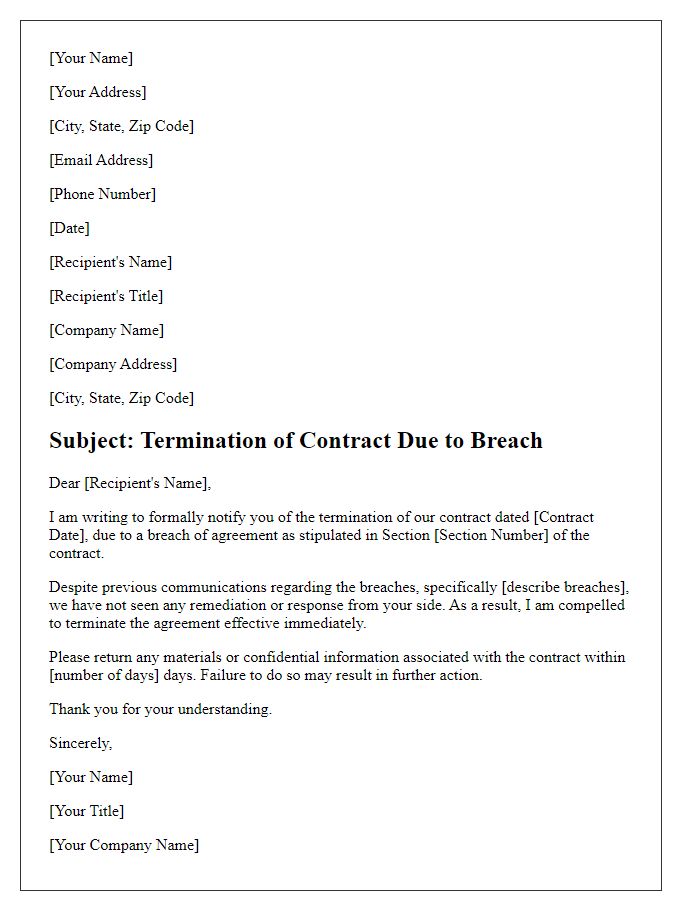
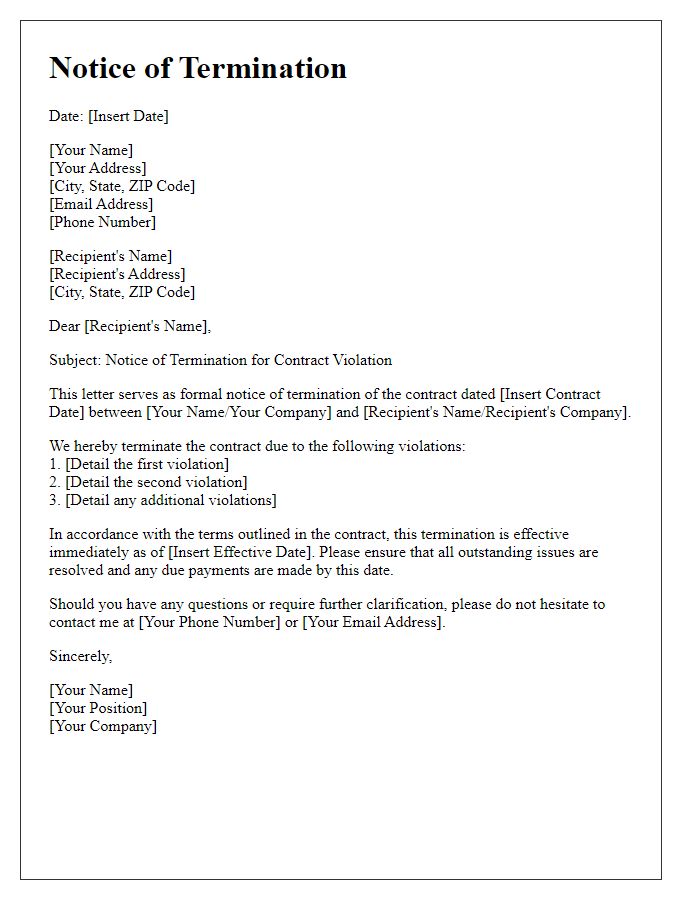
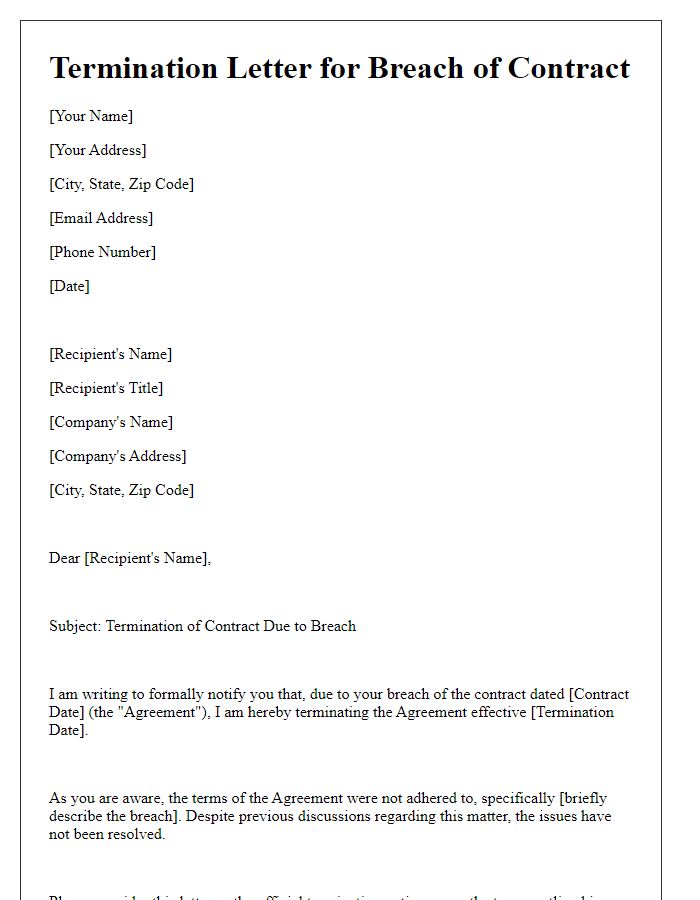
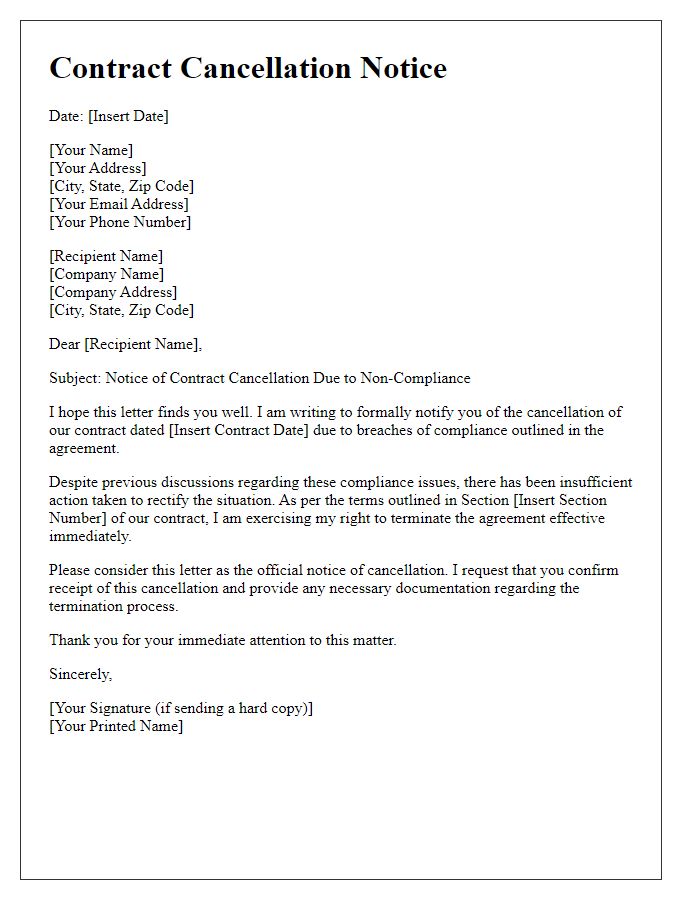
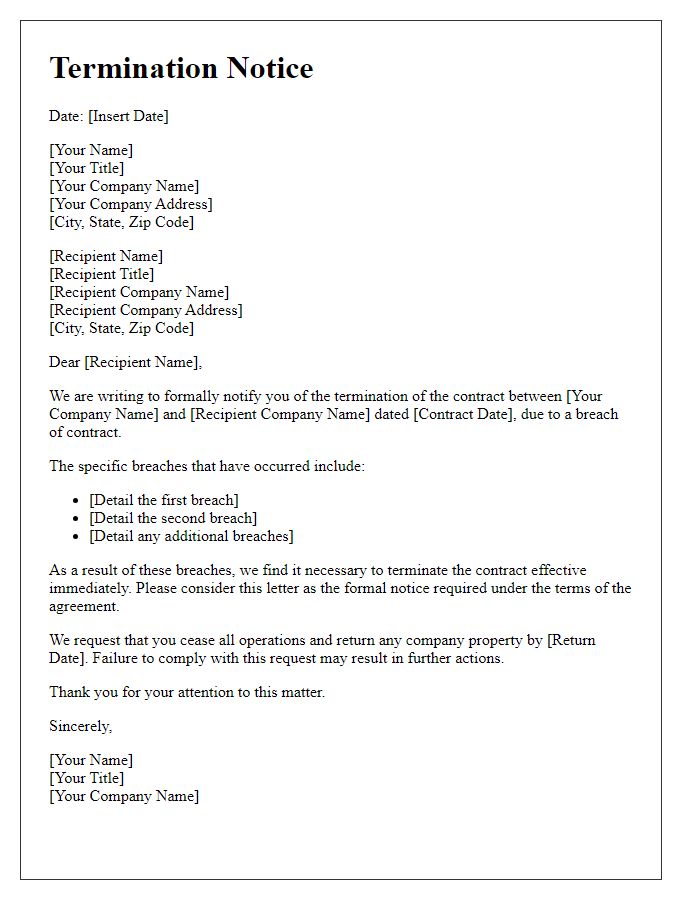
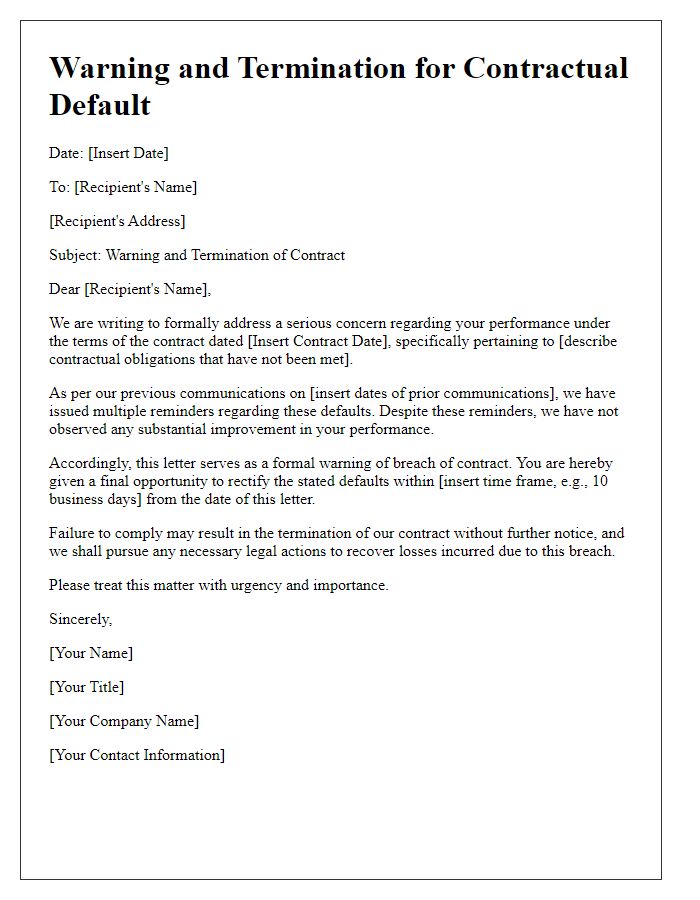
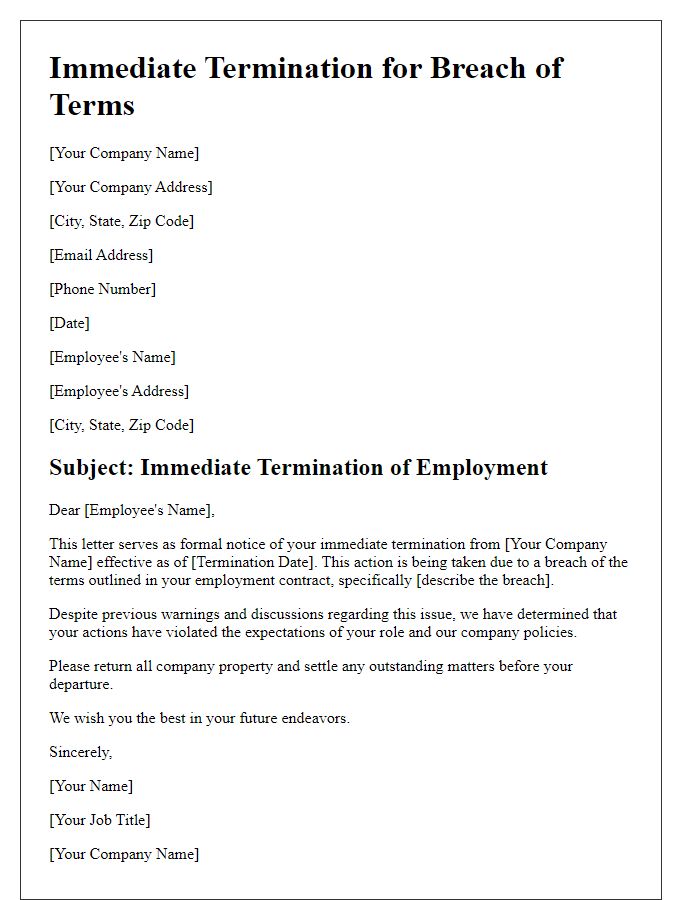
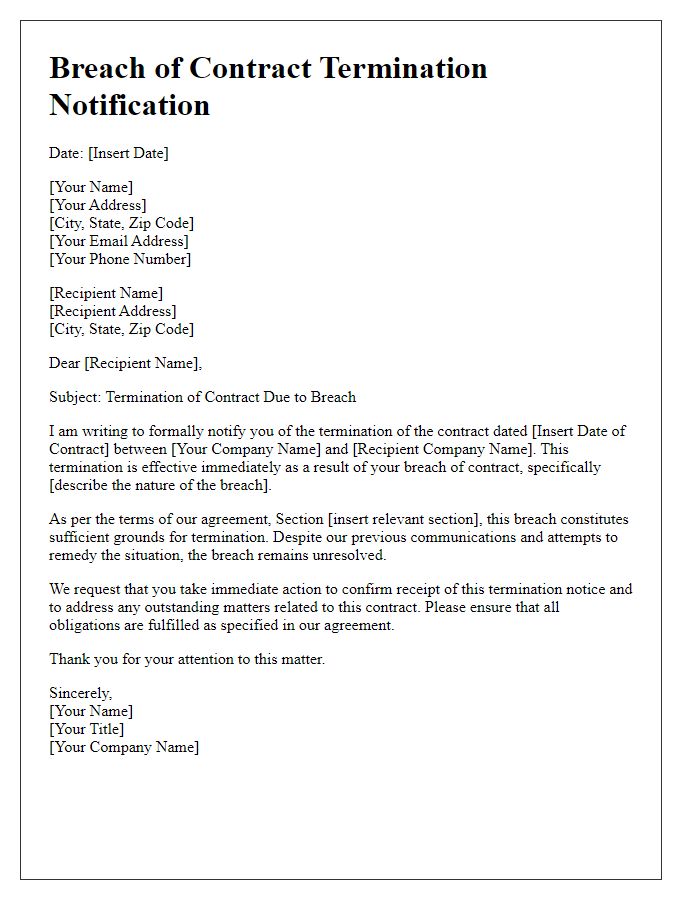
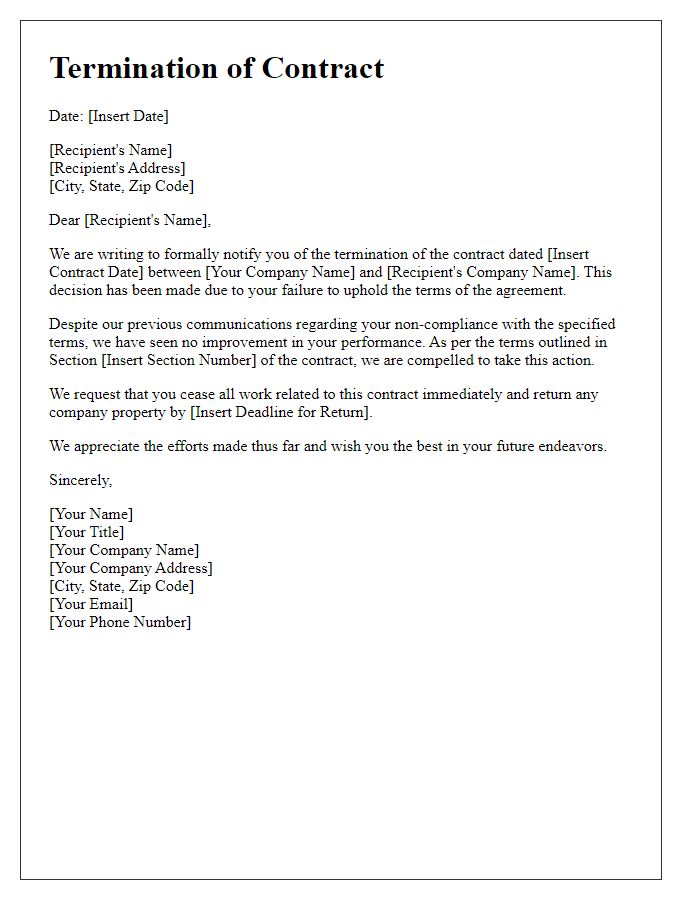
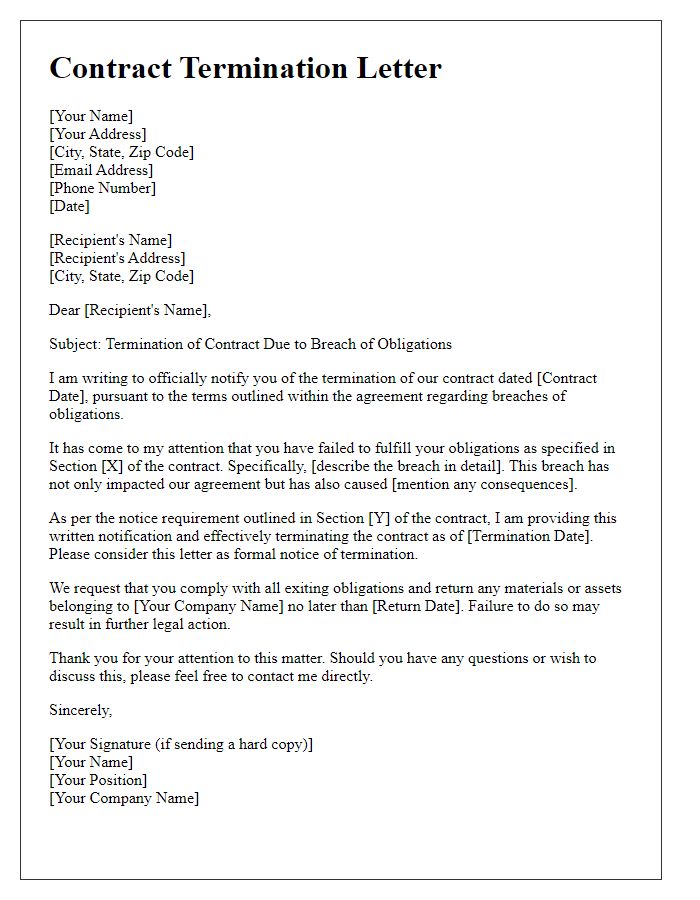


Comments